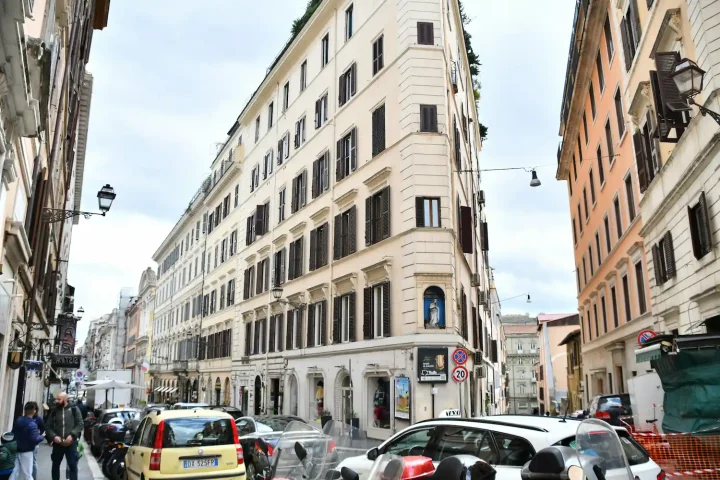Italy is a living tapestry of art, architecture, cuisine, and centuries-old traditions. From the ruins of ancient Rome to the Renaissance masterpieces of Florence, each city tells a story that resonates far beyond its borders.
For millions of people around the world with Italian ancestry, these cities represent not only cultural heritage but also a personal connection to their own ancestry.
Obtaining Italian citizenship is more than a legal status—it’s a key that unlocks privileged access to this rich cultural landscape. It allows descendants of Italians to reconnect with their roots, explore iconic cities without restrictions, and enjoy the full rights of European Union citizens.
Benefits of exploring Italian cities as a citizen
Becoming an Italian citizen opens doors that go far beyond tourism. It grants the freedom to live, work, and study anywhere in Italy without the need for visas or permits.
Whether you’re dreaming of attending university in Bologna, launching a startup in Milan, or retiring in the Tuscan countryside, citizenship removes bureaucratic barriers and empowers you to make long-term plans.
One of the most significant advantages is mobility within the European Union. With an Italian passport, you can travel, reside, and work in any of the 27 EU member states. This means seamless relocation to cities like Paris, Berlin, or Barcelona, with access to local healthcare, education, and employment markets.
Additionally, Italian citizens enjoy visa-free travel to over 190 countries, including Canada, the United States, Japan, and Australia. This global mobility is a major asset for professionals, students, and frequent travelers who value flexibility and freedom.
Iconic cities and their relevance for Italian descendants
Italy’s cities are not just beautiful—they are deeply symbolic for those reclaiming their Italian heritage. Each one offers unique opportunities and cultural experiences that resonate with citizens in different ways.
- Rome: The Eternal City is a treasure trove of history, from the Colosseum to the Vatican. As Italy’s capital, it’s a hub for government, international diplomacy, and religious institutions. For citizens, Rome offers access to prestigious universities, global organizations, and a vibrant urban lifestyle rooted in antiquity.
- Milan: Known as Italy’s financial and fashion capital, Milan is a magnet for innovation and entrepreneurship. It’s home to major corporations, design schools, and international trade fairs. Italian citizens can tap into Milan’s dynamic job market and cosmopolitan culture with ease.
- Florence: The birthplace of the Renaissance, Florence is ideal for those drawn to art, history, and academia. With world-class museums, historic architecture, and a strong educational infrastructure, it’s a perfect city for students and creatives looking to immerse themselves in Italian culture.
- Venice: A city unlike any other, Venice offers a unique blend of maritime history, romantic charm, and cultural depth. For citizens, it’s a gateway to tourism-related careers, heritage preservation, and artistic endeavors in one of the world’s most iconic destinations.
- Naples: Rich in tradition and southern hospitality, Naples is known for its cuisine, music, and proximity to natural wonders like Pompeii and the Amalfi Coast. It’s a city where family ties run deep, making it especially meaningful for descendants reconnecting with their ancestral roots.
Each of these cities offers distinct possibilities for Italian citizens—from academic pursuits and professional growth to personal fulfillment and cultural immersion.
The Italian citizenship process for U.S. residents
For U.S. residents of Italian descent, the path to citizenship is governed by the principle of jus sanguinis—the right of blood. This means that if you can prove an unbroken lineage from an Italian parent or grandparent who did not renounce their citizenship, you may be eligible.
Click here for more information.
The process involves gathering a comprehensive set of documents, including:
- Birth, marriage, and death certificates for each generation
- Non-naturalization for ancestors who emigrated
- Apostilles and certified translations of all documents
Timelines can vary depending on the complexity of the case, but applicants should expect the process to take a few years.
This is where io.citizen becomes invaluable. Their team offers full-service support, from genealogical research and document preparation to legal representation and consulate scheduling. With their expertise, applicants can navigate the process with confidence and clarity.
Why citizenship enhances the Italian city experience
Italian citizenship doesn’t just grant access—it transforms the experience of living in Italy. Citizens are entitled to public healthcare, which is high-quality and affordable. They can also enroll in public universities, many of which offer low tuition fees and internationally recognized programs.
There are also fiscal benefits for residents, including tax incentives for returning expatriates and simplified procedures for property ownership. These advantages make it easier to settle down, invest, and build a life in Italy.
Moreover, citizens can participate fully in civic life, including voting in local and national elections, accessing government services, and benefiting from social protections.
To make the most of these opportunities, it’s wise to consult with professionals who specialize in Italian relocation and citizenship. Services like io.citizen not only streamline the legal process but also offer guidance on housing, healthcare registration, and integration into Italian society.
Reclaiming heritage, expanding horizons
For many, Italian citizenship is a bridge between past and future—a way to honor family history while embracing new possibilities. Whether you’re drawn to the cobblestone streets of Florence, the bustling energy of Milan, or the timeless beauty of Venice, citizenship allows you to experience Italy not as a visitor, but as a participant.
With the right support and preparation, the journey to Italian citizenship can be transformative. It’s not just about paperwork—it’s about reclaiming identity, expanding horizons, and stepping into a world of opportunity that spans continents and generations.






